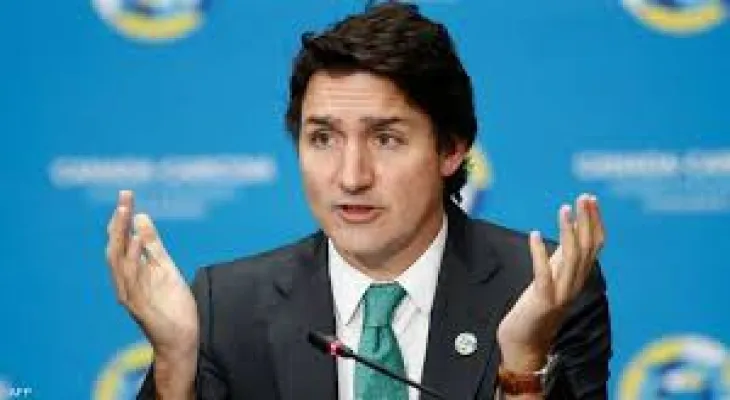Search here
Newspaper
Search here

Arab Canada News
News

Published: April 18, 2024
Most Canadians expressed feelings of anger or pessimism towards the federal government in March more than at any other time in the past six years, according to a survey conducted by Nanos Research.
Nanos has been measuring Canadians' sentiments of optimism, satisfaction, indifference, anger, pessimism, and uncertainty towards the federal government since November 2018.
The latest survey found that optimism has slightly increased to 10 percent since it hit an all-time low of 8 percent in September 2023.
However, 62% of Canadians said they feel either pessimistic or angry, with participants evenly divided between the two feelings.
Nick Nanos, the official pollster for CTV and founder of Nanos Research, said during an interview with Trend Line on CTV News on Wednesday, "What we’re seeing is that the anger rate has hit a new record high."
Only 11% of Canadians felt satisfied, while another 11% said they were indifferent.
Previous survey results show that anger towards the federal government has increased or remained steady across the country since March 2023, while satisfaction has gradually declined.
Will the budget move the needle?
Since the survey was conducted before the federal government released its 2024 budget, it’s possible that anger and pessimism in March may subside somewhat by the time Nanos measures the public's satisfaction again. They could also hold on.
The top five issues for Canadians right now that could impact votes, according to another recent survey by Nanos for Bloomberg, are inflation and cost of living, healthcare, climate change and the environment, housing affordability, and taxes.
With this year's budget, the federal government pledged $52.9 billion in new spending while promising to keep the federal deficit for 2023-2024 at $40.1 billion. The federal deficit is expected to reach $39.8 billion for 2024-2025.
The budget includes plans to boost the stock of new housing, introduce a national disability benefit, implement carbon cuts for small businesses, and increase taxes on higher-income earners in Canada.
However, advocacy groups have complained that it does not do enough to address climate change, or support First Nations communities and Canadians with disabilities.
Keith Brooks, director of the environmental defense program, wrote in a statement on the organization’s website, "Canada is preparing for another disastrous season of wildfires, but this budget failed to give the climate crisis the urgent attention it deserves."
Meanwhile, when it comes to the promise to close what the First Nations Association says is a vast gap in Indigenous infrastructure, the budget falls short by over $420 billion. While advocacy groups praised the upcoming roll-out of Canadian disability benefits, organizations like March of Dimes Canada and Daily Bread Food Bank say that the estimated benefit cap of $200 per month for each recipient will not be enough to lift Canadians with disabilities out of poverty.
According to Nanos, if the budget announcement on Wednesday is not enough to restore support for the federal government, then no amount of spending will do the trick.
Nanos said, "If liberal numbers don’t go up after that, perhaps the lesson for the liberals is that spending is not the political solution for them to break this trend line; it has to be something else."
The Conservatives in "majority territory"
While the Liberal party waits to see what kind of impact its budget will have on voters, the Conservatives have a clear lead when it comes to tracking the polls.
Nanos said, "By any measure you can do right now, the Conservatives are the ones in majority territory."
According to Nanos's tracking research for the week ending April 12, the Conservatives are the top choice for 40 percent of participants, the Liberals at 23.7 percent, and the NDP at 20.6 percent.
Nanos said the formation of the next government by the Liberals or Conservatives will partly depend on whether voters believe that more government spending is or is not key to helping working Canadians.
He added, "Both parties are struggling for working Canadians... and we have two competing visions for that. For the Liberals, it’s about putting government support in their hands and creating social programs to support Canadians."
"For the Conservatives, it’s a completely different matter. It’s about shrinking the size of government (and) cutting taxes."
Comments